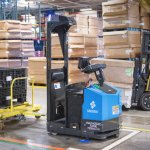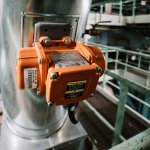Integrating Automation into Your Manufacturing Process
Are you interested in integrating automation into your manufacturing process? It comes with a variety of benefits such as getting projects done more quickly and efficiently, decreasing the number of possible accidents from performing dangerous tasks, and lessening exposure to toxins.
A 2020 report by McKinsey & Co. found that 31% of businesses have fully automated at least one function and 66% are trying out different solutions to automate at least a process within their business. But where do you start? We’ve put together this list to help you navigate the process.
Here’s what you should know about integrating automation into your business:
- Figure Out What You’d Like to Automate
- Select the Right Automation System
- Allow Time for the Testing Phase
- Monitor Automation Improvements & Changes
Contact Air & Hydraulic Equipment, Inc. today to learn more about our industrial automation equipment and systems.
Figure Out What You’d Like to Automate
One of the most important things to be aware of when starting this process is that industrial automation is a large investment for you and your company to take on. As you start considering what you’d like to automate, you’ll need to begin by looking at your operation as a whole. From there, you can address areas in your facility where you can eliminate wasted motion, components that take the most time, and processes that are the least complex. Some areas that you can choose to automate include machine tending, pick and place, and palletizing.
Select the Right Automation System:
You should consider one of the following automation options:
- Computer-Integrated Manufacturing: This refers to the use of computer-controlled machines and automation systems when manufacturing products. It works by combining computer-aided design and computer-aided manufacturing to complete repetitive tasks without any errors. It also makes the manufacturing process faster as it uses real-time sensors and closed-loop control processes.
- Programmable Automation: Programmable automation is a form of automation that completes tasks in batches. This can range from completing just a few dozen products at a time to several thousand. However, for each new product, the equipment will need to be reprogrammed for that specific style.
- Flexible Manufacturing Systems: As its name states, this manufacturing system has flexibility that allows it to react in case of a predicted or unpredicted change. This falls into two categories:
-
- Routing Flexibility: This covers the system’s ability to process a part through different routes so that production won’t be interrupted if something like a machine breakdown were to occur.
- Machine Flexibility: This refers to the system’s ability to produce new types of products and its ability to change the order of operations in order to execute them.
Allow Time for the Testing Phase
Once you decide on an automation system, you’ll need to do a full test in order to ensure that everything works properly and monitor anything that may need to be changed. During this time, you should be working with a specialist who can look at the test results and plan necessary optimizations.
Monitor Automation Improvements & Changes
As technology and your company’s unique manufacturing process continues to change, it’s important that you stay aware of any further changes you can make to your system. You’ll also have to monitor any issues in your system such as equipment slowing down or producing products with errors. You can reduce this problem by establishing a regular review of your equipment to make sure everything is always as efficient as possible. If a large issue does occur, a specialist will be able to test your system and make necessary changes.
Trust the Experts at Air & Hydraulic Equipment, Inc.
At Air & Hydraulic Equipment, Inc., we’re here to help you with any of your industrial automation needs. We offer custom engineering, programming, fabrication, and machining. Our certified team has the knowledge to get your process up and running quickly and efficiently to ensure that downtime is at a minimum.










